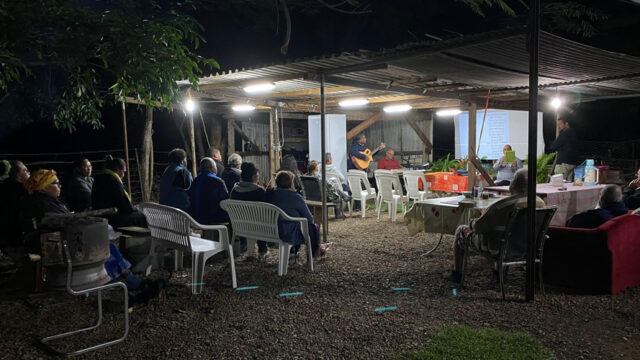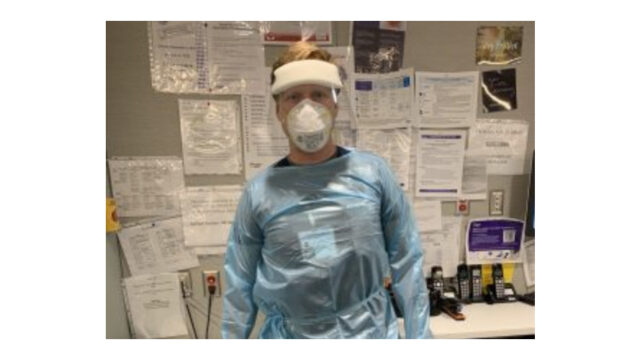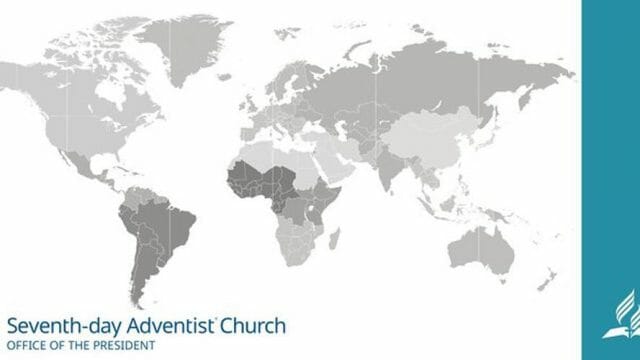In Colombia, humanitarian agency continues to assist thousands of Venezuelan migrants.
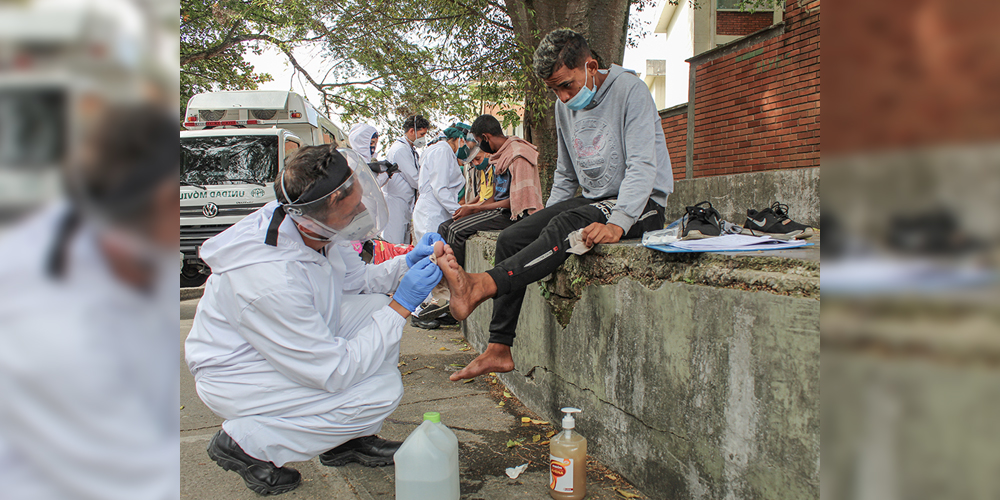
“It was very hard to leave my family and my life in Venezuela, but the economic situation there was too difficult,” Ana Cecilia Alvarado, a Venezuelan migrant who recently arrived in Colombia in search of a better life, said. “I was very sick, so I decided to travel to Colombia with my grandson. The journey was very difficult, and to board a bus, you had to jump and push and be next to people who were hitting and stealing. It was horrible.”
Thousands of Venezuelans like Alvarado have migrated to Colombia because of the economic and political situation. Many in Venezuela have no safe place to live and no money to buy food or get health care.
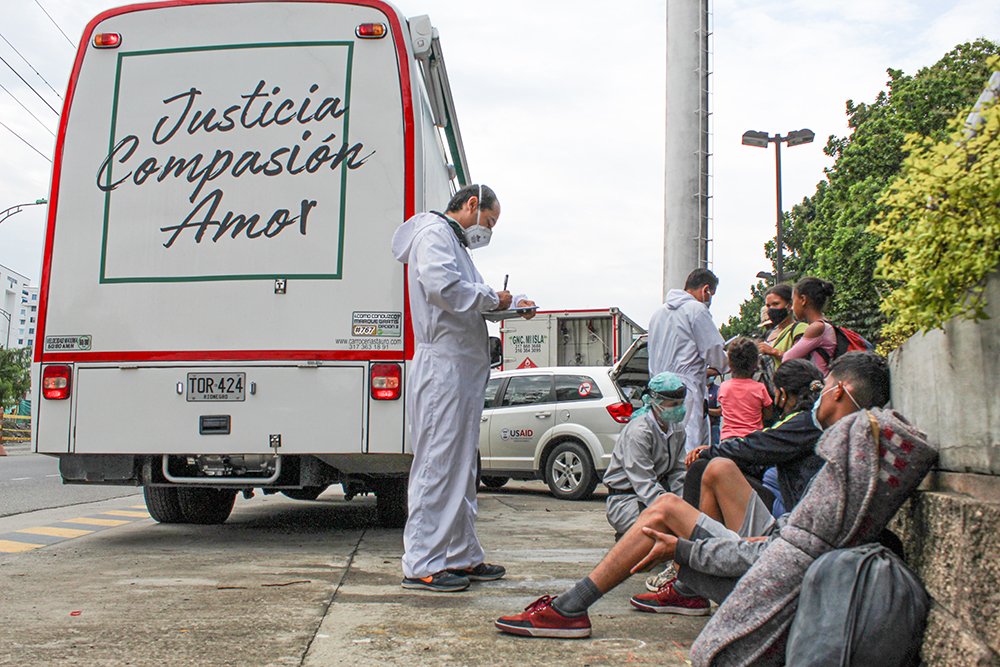
According to Colombian national government statistics, as of January 31, 2021, 1,742,927 Venezuelan migrants were living in Colombia. Fifty-four percent of them are living in unstable conditions.
The Adventist Development and Relief Agency (ADRA) in Colombia and the United States Agency for International Development (USAID) have partnered since 2018 to offer services to migrant families. Its latest partnership project, coined as Streamlined Health and Wash Activities (SHAWA) for migrants in Colombia, has been offering primary health services in the city of Medellin in Antioquia and Bucaramanga in Santander since May 2021.
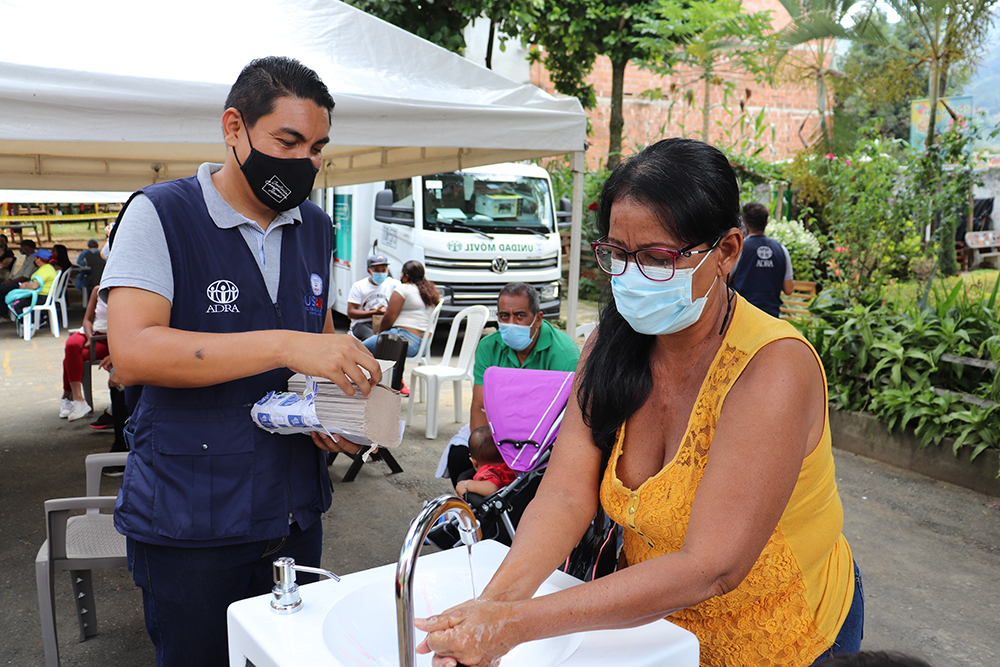
“We are thankful to God because we have been able to assist so many in these two departments through justice, love, and compassion, which we profess in ADRA Colombia,” Jair Flórez, ADRA Colombia director, said. “We are delighted to be part of [this initiative], as we give hope to those who, for different reasons, lack health coverage. Thanks to this project, they can get doctors’ appointments, basic lab tests, and medicines.”
As of early August 2021, more than 114,532 persons have benefited from the ADRA Colombia and USAID partnership through health services, water, and hygiene kits, as well as with shelters throughout the country.
The SHAWA project, which is the third phase of the ongoing partnership, consists of two mobile units equipped with a power generator, a medical office, space for medicines, a restroom, a lift for those with disabilities, and wheelchairs provided by the ministry of transportation.
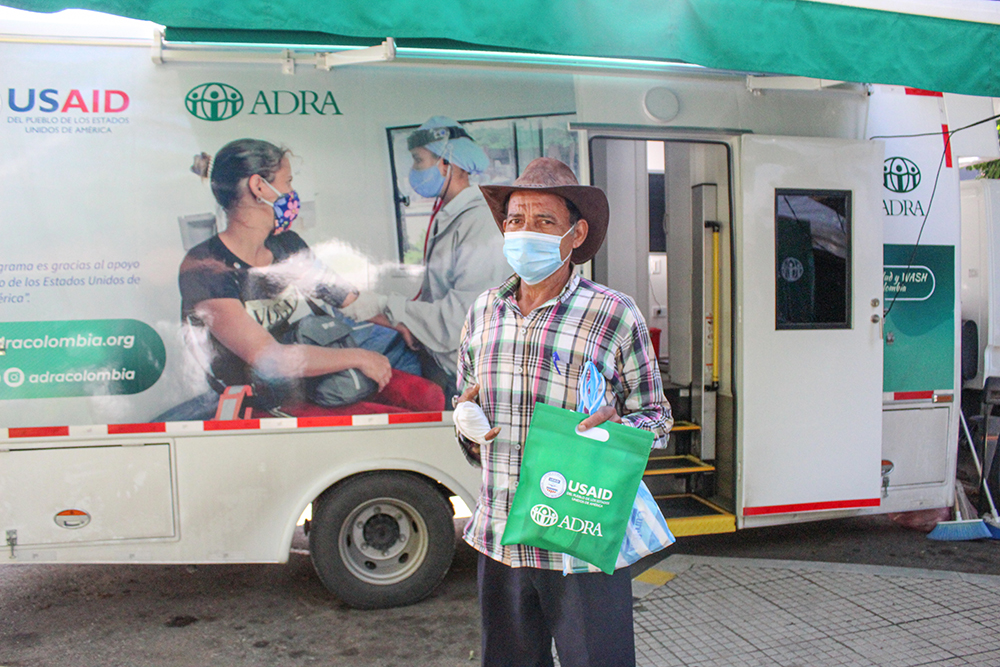
Like Alvarado, hundreds of Venezuelans have benefited from the program with medical attention, medicines, laboratory test authorizations, and sexual and reproductive health training.
“When I got to Medellin, my condition worsened, and a friend told me about ADRA when I had lost all hope,” Alvarado explained. “ADRA gave me hope to live and, thanks to their attention and treatment, my health has been improving. Right now, my condition is being controlled,” she said. She is one of 69,700 people who have benefited from the SHAWA project since it began.
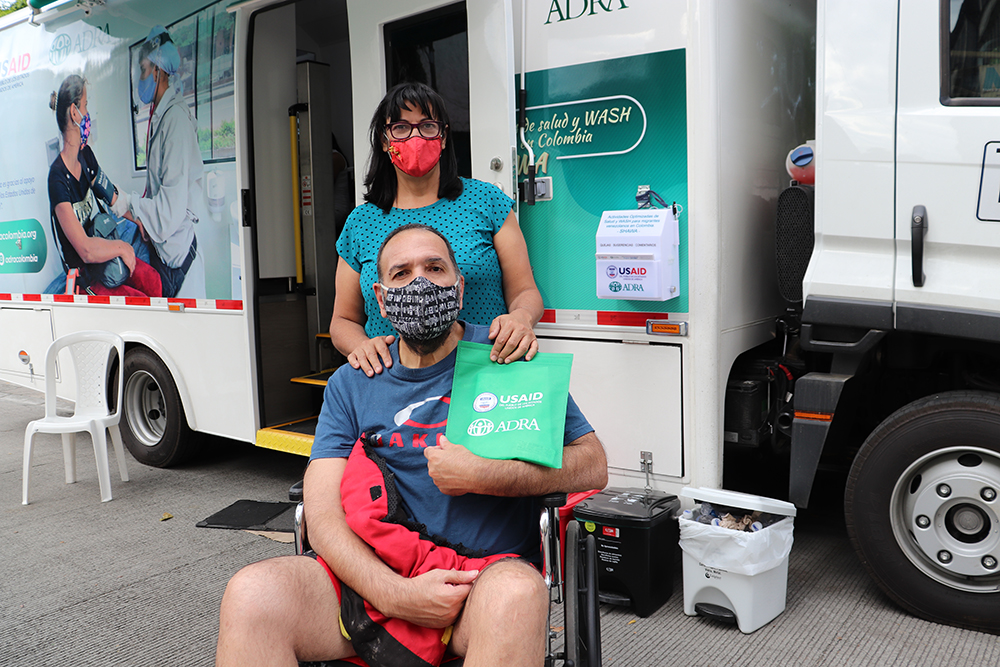
Since many began their journey to various Latin American countries, ADRA Colombia has been committed to programs that assist Venezuelan migrants, especially in Colombia, Sandra Rincón, program director for ADRA Colombia, said.
“We have constantly been carrying out needs assessments since 2018 to better understand the social emergency in the country and have worked on helping the vulnerable as they enter the country,” Rincón explained.
During a visit to one of the mobile units, German Marín, health director of the Ministry of Health in the Santander government office, congratulated ADRA Colombia for its ongoing project to assist those more vulnerable. “We see that the medical staff and leaders working with the SHAWA project are very committed, and we want to extend our appreciation for this group for the work they are doing,” Marín said.
ADRA Colombia leaders said that the project will continue for several months.
The original version of this story was posted on the Inter-American Division news site.



